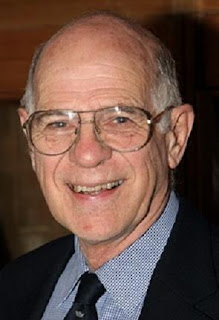Canon Michael Green: Church of England should recognize ACNA
Letter to CEN from Rev. Canon Dr. Michael Green
http://sanctusblog.blogspot.com/
March 25, 2012
 Sir, Having just returned from leading a Diocesan Clergy Conference for the Anglican Church in North America, I offer my impressions, since we in UK are not always well informed about our orthodox brethren in America.
Sir, Having just returned from leading a Diocesan Clergy Conference for the Anglican Church in North America, I offer my impressions, since we in UK are not always well informed about our orthodox brethren in America.
We need to be aware that the assault by lawyers of the Episcopal Church on their orthodox churches and their remaining two or three orthodox dioceses continues. These lawsuits are almost always successful and so increasingly the best and most biblical clergy and congregations are being evicted from their church buildings. The Episcopal Church can hardly ever fill them with 'shadow congregations' so they are empty and are being sold off as Muslim mosques and for other purposes, but never to ACNA.
I was struck by the fact that the Anglican Church in North America, now numbering well over 100,000, are no longer looking back over their shoulder to the loss of their buildings, but are vigorous and forward-looking. Some 200 new congregations have been formed in the past two-and-a-half years, while the aging membership of the Episcopal Church continues to shrink and some 72 per cent of their churches are in financial trouble. By contrast 400 church leaders from ACNA met a couple of weeks ago to plan for the founding of 1,000 new Anglican churches across North America in the next five years.
A fascinating combination of churchmanships mark the new Anglicans. They are avowedly Catholic, Evangelical and Charismatic, and it seems a very holistic mixture. They have caught the attention of the media. CBN recently did a six-minute piece entitled 'Anglican Fever Youth flock to New Denomination'. Of course they do not see themselves as a new denomination at all, but as the continuing witness to Prayer Book Christianity. They have an upcoming Provincial Assembly in June.
The sad feature is a break within the Anglican Mission in the Americas. This was the first group to separate from the Episcopal Church under the aegis of the Archbishops of South East Asia and Rwanda. Although they joined in when the orthodox diaspora came together as ACNA, they remained in many ways distinct. South East Asia is no longer involved, but now there has been a rupture with the Archbishop of Rwanda, with whom only two of their bishops now remain aligned, while the other six are in an ecclesiastical No Man's Land. This is tragic, and great efforts are being made to repair the split.
That apart, the ACNA is on the move. Many of its congregations are small, meeting in gymnasia, large homes, or borrowed buildings from other churches. Their attitude is positive, their aim is outreach, and their sacrifices are impressive. No wonder 75 per cent of the Anglican Communion recognise them (while half the Provinces of the Communion are in broken or impaired communion with the Episcopal Church).
Surely it is high time for the Church of England to give them the recognition they merit.
END













